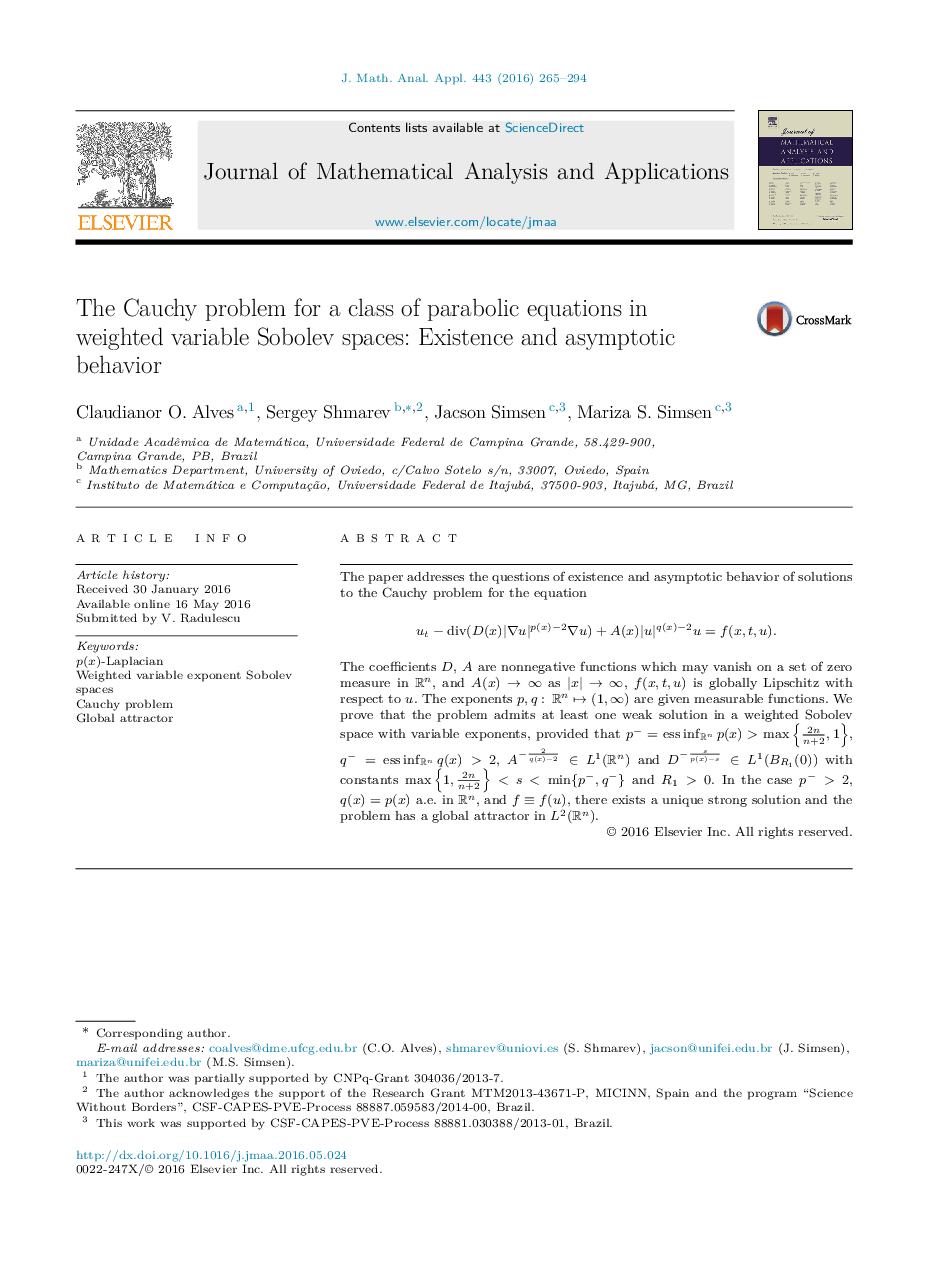| Article ID | Journal | Published Year | Pages | File Type |
|---|---|---|---|---|
| 4613928 | Journal of Mathematical Analysis and Applications | 2016 | 30 Pages |
The paper addresses the questions of existence and asymptotic behavior of solutions to the Cauchy problem for the equationut−div(D(x)|∇u|p(x)−2∇u)+A(x)|u|q(x)−2u=f(x,t,u).ut−div(D(x)|∇u|p(x)−2∇u)+A(x)|u|q(x)−2u=f(x,t,u). The coefficients D, A are nonnegative functions which may vanish on a set of zero measure in RnRn, and A(x)→∞A(x)→∞ as |x|→∞|x|→∞, f(x,t,u)f(x,t,u) is globally Lipschitz with respect to u . The exponents p,q:Rn↦(1,∞) are given measurable functions. We prove that the problem admits at least one weak solution in a weighted Sobolev space with variable exponents, provided that p−=essinfRnp(x)>max{2nn+2,1}, q−=essinfRnq(x)>2, A−2q(x)−2∈L1(Rn) and D−sp(x)−s∈L1(BR1(0)) with constants max{1,2nn+2}
